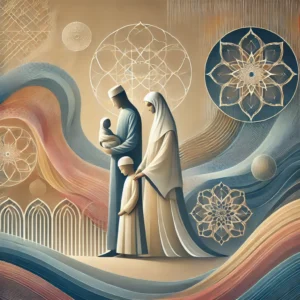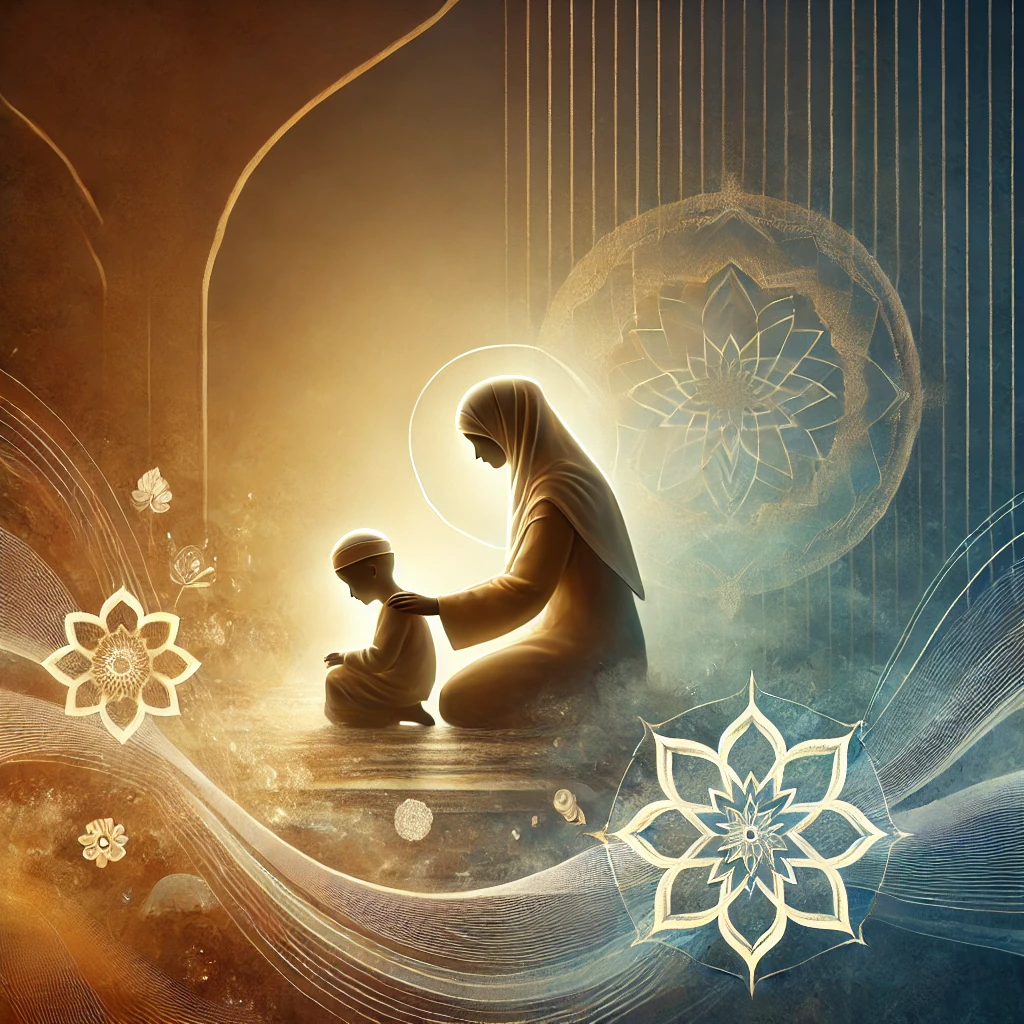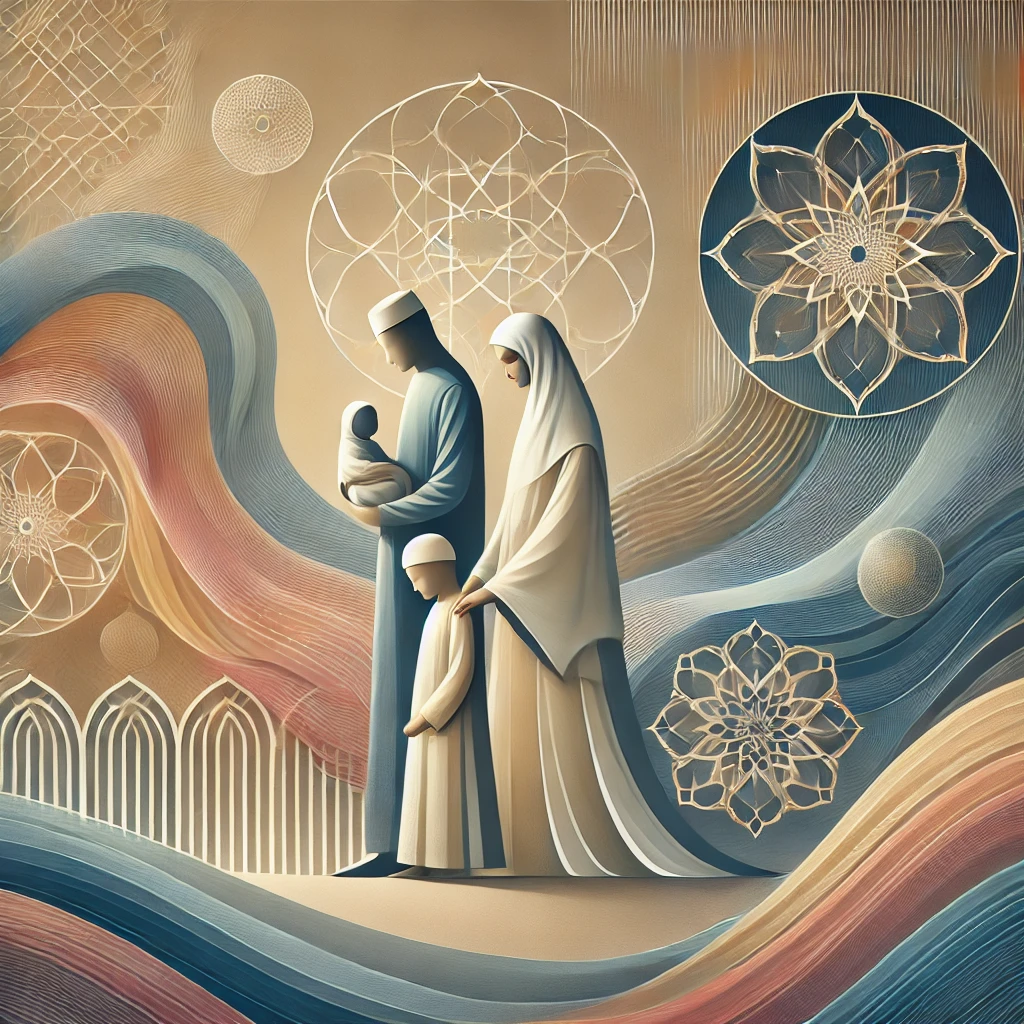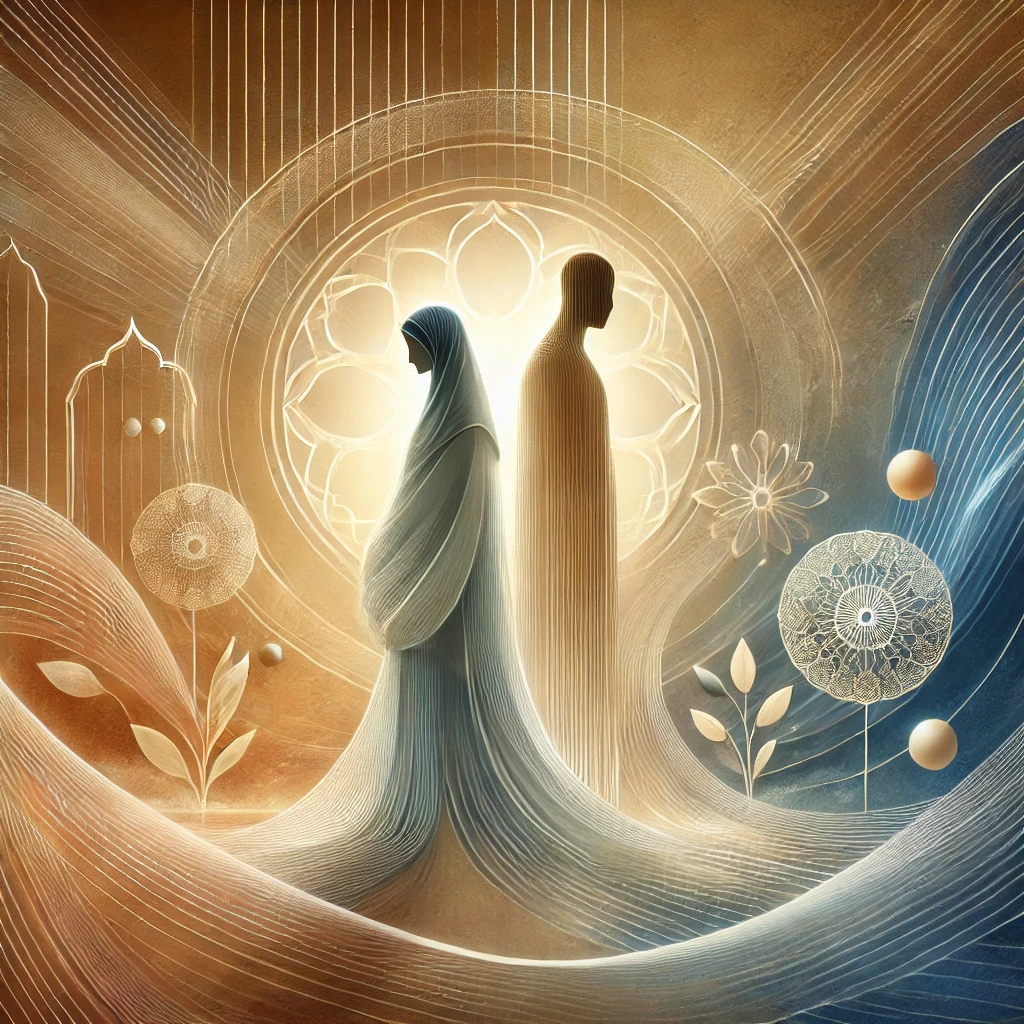In Islam, the family is regarded as the fundamental building block of society, and women are given the esteemed role of nurturing and shaping future generations. Mothers, in particular, play a pivotal role in raising children who will grow up to be morally upright, responsible, and faithful individuals. Islam emphasizes the significance of a woman’s influence in the development of her children’s character, education, and spiritual well-being, recognizing motherhood as both an honor and a responsibility.
The Quran highlights the importance of motherhood, reminding believers of the sacrifices that mothers make in bringing their children into the world and raising them. In Surah Luqman, Allah says: “And We have enjoined upon man [care] for his parents. His mother carried him, [increasing her] in weakness upon weakness, and his weaning is in two years. Be grateful to Me and to your parents; to Me is the [final] destination.” (Surah Luqman, 31:14). This verse emphasizes the hardships and efforts that mothers endure, elevating their status in the eyes of Allah and encouraging children to honor and respect them throughout their lives.
The Prophet Muhammad (PBUH) further affirmed the high status of mothers when he said: “Paradise lies under the feet of mothers.” This Hadith highlights the spiritual significance of motherhood and the profound impact a mother has on her children. In Islam, a mother’s love, care, and guidance are considered essential for the development of a child’s faith, character, and moral compass. Mothers are entrusted with the responsibility of nurturing not only their children’s physical needs but also their emotional and spiritual growth.
Education is another key area where women play a crucial role in Islam. Mothers are often the first teachers their children encounter, and they are responsible for imparting fundamental values such as kindness, honesty, respect, and faith. The Prophet Muhammad (PBUH) emphasized the importance of education for both men and women, saying: “Seeking knowledge is obligatory for every Muslim.” This Hadith applies to both boys and girls, encouraging mothers to educate their children and instill in them a love for learning and a desire to seek knowledge throughout their lives.
In addition to formal education, mothers in Islam are seen as role models for their children. A child learns by observing their parents, and a mother’s behavior, actions, and attitude towards others deeply influence a child’s character. By demonstrating kindness, patience, and compassion, a mother teaches her children how to navigate the world with integrity and faith. The Prophet Muhammad (PBUH) said: “The best of you are those who are best to their families.” This Hadith underscores the importance of positive family relationships and highlights the critical role mothers play in creating a nurturing home environment.
Islam also recognizes that the role of a woman in raising future generations extends beyond the home. Women are encouraged to pursue education, work, and contribute to society while maintaining their family responsibilities. A well-educated and knowledgeable mother is better equipped to raise children who are not only morally sound but also intellectually capable and socially responsible. The Prophet Muhammad (PBUH) valued the contributions of women in society, and many of his companions, such as his wife Aisha (RA), were known for their knowledge and wisdom, which they passed on to future generations.
While motherhood is a significant role, Islam does not limit women to this role alone. Women are encouraged to develop their own talents, pursue personal goals, and contribute to the broader community, all while maintaining the balance between their family responsibilities and societal contributions. The role of a mother is thus seen as both deeply personal and far-reaching, shaping not only the future of individual children but also the future of the community and society at large.
In conclusion, the role of women in raising future generations is highly valued and respected in Islam. As mothers, women are entrusted with the care and development of their children’s physical, emotional, and spiritual well-being. Through their influence, education, and guidance, mothers play a central role in shaping the future of society. Islam recognizes motherhood as a noble and significant responsibility, and women are honored for their contributions in nurturing the next generation of faithful, responsible, and morally upright individuals.










